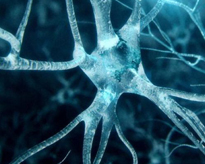
NEUROLOGY
Alzheimer's
Alzheimer’s disease is the most common form of dementia among elderly people. It is a progressive and irreversible neurological disease which affects the brain and leads to the death of the neurones. It is the most frequent cause of all dementias, producing a decline in all cognitive functions.
The most frequent initial symptoms are loss of short-term memory (forgetting what has just been said, what has just happened, etc.), the ability to concentrate and take an interest in things, as well as a tendency towards isolation and disorientation.
Parkinson's
Parkinson’s is a disease caused by a multisystem neurodegenerative process which affects the central nervous system, leading to the appearance of motor and non-motor symptoms. It is chronic and affects each sufferer in a different way. It may develop very slowly in some patients and more quickly in others.
In spite of all the advances made in neurology, the aetiology and cause of Parkinson’s disease are still unknown today, meaning that it is also not known how to prevent it. It affects men and women, and more than 70 percent of people diagnosed with Parkinson’s are over 65 years of age. However, it is not just a disease which affects people of advanced years, as 30 percent of those diagnosed are under the age of 65.
Epilepsy
Epilepsy is a chronic brain disease which affects people all over the world and is characterised by recurrent seizures. These seizures are short episodes of involuntary movements which may affect one part of the body (partial seizures) or all of it (generalised seizures), and are sometimes accompanied by loss of consciousness or loss of sphincter control. Seizure episodes are a result of excessive electrical discharges in groups of brain cells. The discharges can occur in different parts of the brain. Seizures can vary from very brief lapses of attention or jerking of muscles to prolonged and serious convulsions.








